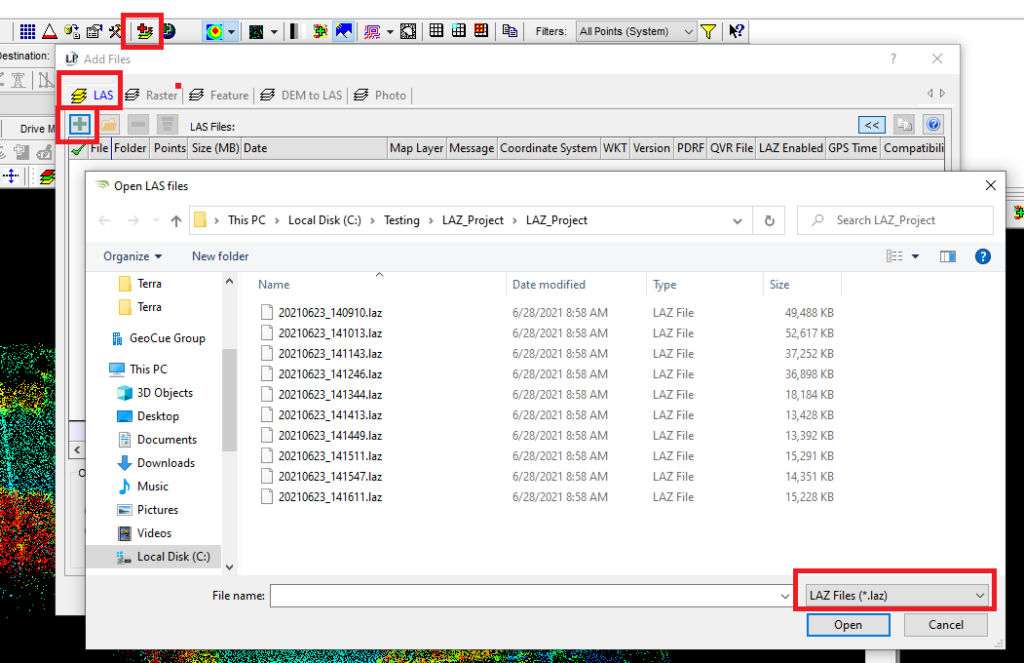LAZ is an open source compressed file format useful for more efficiently storing point cloud data than the LAS file format. It is strictly a storage format and must be converted to LAS before it can be used for processing or analysis purposes as the format does not allow for direct edits. Files in the LAZ format will be decompressed by LP360 / True View Evo to the LAS format while adding them to the project. The user also has the ability to export files to the LAZ Format in LP360 / True View Evo from LAS files in a project. Once the user has LAZ files associated with their project, LP360 can automatically update these based on edits performed to project LAS files.
Importing LAZ
The user has the ability to import LAZ data directly into their LP360 project using the Add Data button. Toggle the file filter to .laz. The LAZ files are decompressed into the LAS format during import and retain the same file structure and names as the LAZ files.
Exporting to LAZ using LP360
LAZ files can be created based on the project LAS files from the Table of Contents (TOC) or the LAS Files tab context menu. When choosing the export option from the TOC by right-clicking on the desired LAS layer, the user is creating a LAZ file for each LAS file on the layer. If exporting by right-clicking on selected files in the LAS Files tab, the user has the ability to choose specific LAS files to export to the LAZ format.
LAZ files are saved to the same folder(s) as the original LAS files by default. If desired, the user can place these into another folder by choosing “No” when prompted to confirm the location for the LAZ export.
Saving to LAZ
When saving a project created from LAZ files you will be prompted to update the original LAZ files with the changes that were made to the LAS files. You can also choose to delete the corresponding LAS cache files that were created when the LAZ files were decompressed while being added to the project. Deleting the LAS cache files is only recommended when you are finished editing the project, otherwise the LAZ files will have to be decompressed each time you open the project.




